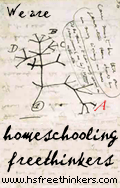Initially I decided to jump right in with and stick to the Greeks and Romans, in keeping with my new focus on a truer sense of a classical education, using Great Books Academy's (GBA) Ninth grade course list as my main source for reading materials. My kids though, and probably yours, are fascinated with the Egyptians, so naturally they had to be included too, especially as Fort Lauderdale is one of the three U.S. cities hosting the return of King Tut's treasures at the end of this year. (Can you believe it was 26 years ago that the collection first toured?) Since I will be dealing with an upcoming fifth grader as well as an upcoming eighth grader, and since this will be our first return to the first period we ever studied as homeschoolers, a time when I knew even less than I do now and was far less organized meaning some important facts were no doubt left out, and since, well, (here comes the part where I stick to Sarah's request for more honesty from homeschooling instructors...) it's hard, too hard for me at this point anyway, I began modifying my lofty goals. My Latin is still only at an early high school level, my Greek non-existent, so we will not be reading the classics in their original forms next year. The English translations are still difficult for me because I am not comfortably familiar with the mythology and complete storylines of Homer's works, so more mid-level sources were added from the Veritas catalogue, The Well Trained Mind, and from GBA's Third and Fourth grade lists, in the form of junior translations. The three of us are firmly in the logic stage.
Another modification I made was to begin at the beginning with the earliest civilizations and include some Old Testament biblical history. Gilgamesh is a good start. We loved Ludmilla Zeman's picture books last time and I would like to use them again along with an actual translation, possibly Ferry's version. We used the Kingfisher Encyclopedia as our spine the first time which covered many early civilizations, but not in any flowing narrative. Wondering what to use as a spine this time, I pulled out Asimov's Chronology of the World which is very helpful for me to see how it all comes together, but not for the kids. A better choice for this time period, for me, seems to be Asimov's Guide to the Bible as it explains the history alongside the stories, differences in translations, and clarifies the relationships between ancient groups in an awesome narrative, all from a secular perspective. Along with the DK Illustrated Family Bible which looks to be a good choice for the kids for a brief, basic Bible study because it includes cultural and historical information and explanations along with the stories, I think those will be our major references for the study period. Egypt is covered, mostly with books from last time used more in depth. I would still like to find some resource to pull all the Greek materials into some cohesive package and am interested in reading GBA's history lesson plans for Fourth grade and the Study Guides for the Greek Year (Ninth), which include answers along with lesson plans.
With all this additional material to cover I decided to use the Greeks as a cut off point, saving the Romans and a quick trip through the New Testament for the following year. Now begins the time consuming process of perusing all those various retellings of myths, The Iliad, and The Odyssey, narrowing down the huge list I've compiled to find the editions that best suit us, and evaluating what I already have on hand.
Looking For a Secular Florida Umbrella School?
Monday, January 03, 2005
Subscribe to:
Post Comments (Atom)











No comments:
Post a Comment